
War Diary of Staff Sergeant Hanford Maurice Rice
World War Two
European Theater
(part 2)
This info shared with you by
Kraig J. Rice
www.7-star-admiral.com



His war diary is combined here with his regimental history and with his division history.
In other words, to make his war diary more interesting I have quoted the official battle history of the
U.S. 2nd Infantry Division as well as the official history of his U.S. 9th Infantry Regiment.
Each history was written and printed in 1945. Each battle listed below is color coded:
The Division history is shown here in blue print
The Regimental history is shown here in green print
His diary is shown here in brown print
| The Battle for Brest | The Move to Belgium |
| The Attack on Wehlerscheid | Wounded and Sent Home |
The Battle for Brest
Knowing this, the German High Command had ordered the Brest garrison to hold out for at
least 90 days. Pillboxes and emplacements of steel reinforced concrete, plus the bitter
defense of the paratroop garrison, testified that the Germans had determined to make the
port another Stalingrad.
Hitler demanded three months. Brest fell in 39 days.
For generals and commanders, Brest was notable because it involved street fighting
technique. The GI remembers it best because, while it was a deadly, bloody business, he
could at least sleep in a bed for the first time since D Day plus 1, enjoy fine wines and
liquors and investigate German billets, storehouses and canteens filled with Nazi loot.
But he had to come a long, hard way before enjoying these luxeries- through hedgerows as
thick and roads sunk as deep as those in Normandy, past heavily defended concrete
emplacements, and against a vicious weapon, the flak gun fired at point blank range.
Brest proper lies on the northern side of the harbor, cut in half by the Penfield River,
flowing south into the harbor. Across the harbor to the southeast of the port, the Daoulas
Peninsula juts out and to the southwest, to the Crozon Peninsula. Both the city proper and
the two peninsulas were heavily defended.
...Task Force B moved against Daoulas on August 22 and soon overran the first major objective,
Hill 154, highest point on the peninsula. The tactic was to creep Indian-fashion through
low-lying bushes which the enemy had failed to cut down around the hill, to encircle and surprise.
One prisoner of war (PW) taken from a concrete emplacement said: "I knew you were coming but
I couldn't do anything. I could see no one to shoot. The first American soldier I saw was the one who captured me."
Too late the Germans attempted to reinforce the concrete pillboxes, barbed wire entanglements
and trenches encircling the hill's peak. One infantry company held off reinforcements while
another bagged the position. Entirely the doughboys' show without benefit of artillery or
air support, the maneuver was highly successful. Hill 154 commanded the entire area and was a valuable observation post.
The fall of the Daoulas Peninsula produced an immediate advantage. Tank Destroyer (TD)
artillery and heavy machine guns now could be set up along the shore, pouring direct,
harassing fire across the harbor into the city. Observers on Hill 154 and liaison planes
made it increasingly difficult for the enemy to use artillery without revealing his
position. While the battle for Daoulas raged, the division crashed Brest's outer defenses.
A key objective was Hill 105, which was to the outer defenses what Hill 154 was to Daoulas.
There the similarity ended, for 105 was taken only after slow, painful fighting. Hill 105
was larger, more heavily manned, more bitterly defended both in the approaches and on the
slopes. Buttressed by concrete dugouts and positions, the Krauts defended it foot by foot.
Attacking the hill's approaches, one company inched its way toward a group of six bunkers.
A platoon crossed the Guipavas - Brest road, and one squad reached the first bunker when a
loud explosion, followed by three successive blasts, rocked the terrain. Huge boulders,
sharp chunks of concrete and debris burst in all directions. One man said later he "just
kept climbing" even though he was buried to the waist. Others were not so lucky.
The squad which reached the first bunker was completely wiped out. Only two members of the
platoon's remaining squads were battle fit. Although few were killed, many were stunned
and hurt. The company commander gathered 22 men together and pressed on for 400 more yards before being stopped.
Two days later another company met its day of trial with sacrifice and courage. Enemy
paratroopers at Fourneuf held a ridge threaded with tunnels, pillboxes, foxholes and
camouflaged gun emplacements. Because little protection was offered by this terrain, a
smoke screen was thrown up to cover the advancing infantry. One platoon struck out blindly
through the smoke, each man aware of the danger of the mission. They were found later, lying
in a field along a sunken road, still in perfect platoon formation. All but three were
dead, but bloodied bayonets, and 28 German bodies in one field grimly told the full story of the battle.
The fortunes of war were kinder to Company E, 23rd Inf., as it attacked a similar stronghold
on Hill 105. Boldness, luck and surprise were accompanying features. GIs blasted a flak gun
with mortar fire and charged into a pitted road with fixed bayonets, kayoing machine guns
on both flanks, and forcing the Nazis to surrender.
Artillery and air bombardment softened up Hill 195, but it was the hard-hacking hedge-to-
hedge infantry slugging which finally took it. Hill 105 commanded the outer defenses of
Brest and the city itself. Hills 90 and 100 still had to be taken, but after the highest-
105- had fallen, the others were doomed.
As soon as riflemen had secured both slopes of the hill, tank destroyers again went into
action, stabbing into the hills on the same ridge and into the city's out-lying suburbs.
Division and corps artillery also wheeled into position, constantly lobbing high explosives,
interspersed with smoke shells, to mark targets for sweeping fighter bombers.
Brest Airfield was the scene of another bitter struggle. South of the field the infantry was
pinned down by fire coming from concrete emplacements which had resisted three days of
heavy shelling. To start the attack rolling on one company sector, flame-throwers were
brought up to fire into embrasures of an enemy machine gun emplacement. Heavy losses in the
company demonstrated that no man experienced in using the weapon was available. Company
commander, Capt. Cameron A. Clough, strapped the equipment to his back, crossed the open
field under heavy fire and destroyed the emplacement. His action enabled the company to
breach the main line of resistance and outflank positions menacing companies on either side.
Captain Clough was awarded the Distinguished Service Cross.
The silence was oddly accentuated by the random chatter of machine guns and the sharp crack
of rifles. Shells whispering overhead to crash in the distance added to the ghostliness.
When a French civilian ventured among the wreckage, his footsteps echoed blocks away. At
night the silence mounted until an occasional shell descended and burst. Pale lights from
flares quickly disappeared in the surrounding darkness.
This was the scene as the 2nd Div. entered Brest for the final battle. The original tactical
plan had been altered so that the division sector now included all of the city east of the
Penfield, while the 29th Div. advanced to capture the area west of the river. The 8th Div.
had moved around to the south to assault the Crozon Peninsula. The stage was set for the
final blow.
Fighting inside of the city of Brest, the swath cut by the GIs veered north into St. Marc,
moving so swiftly that lighted cigars and hot dinners left by the Krauts were found in
hastily abandoned German CPs. Final victory, however, lay beyond a maze of streets and
buildings- fighting far removed from hedgerow warfare. Traditional methods of street
fighting were useless. These streets were death traps swept by machine and flak guns set up
at intersections. Positions were gained by the "ladder route," through back doors, gardens,
up and down ladders, and over walls and hastily improvised catwalks. Another expedient was
to chop a path through the middle of the block by blasting interior walls.
First Lt. Pichegru Woolfolk, 23rd Inf., told how a squad in his platoon had to bore through
seven buildings before reaching an enemy stronghold. But the trick saved lives. Favorite
approach to a building was from above, because lower floor entrances invited showers of
hand grenades and rifle fire from the upper floors.
Direct fire from the 705th TDs, emplaced on the front lines knocked out many strong points.
Men of the 2nd Engrs. punched holes through walls or pushed paths through rubble as much as
15 feet deep in some places.
The division eventually reached the old wall of the inner city. Patrols probed the ancient
moat, searching for an opening. The wall measured 60 feet across in some places- too wide
for demolitions. Two plans were considered- a crossing of the Penfield west of the wall
through the 29th Div. sector, or a penetration of the wall itself.
To Lt. Col. William F. Kernan's 2nd Battalion went the credit for finding a way through.
Company I (Item Company), which had distinguished itself at Forneuf, discovered the
ungarded weak spot. While the company trickled through this hole, other elements of the
battalion found another entrance near the river, overwhelmed the guards and entered.
To prevent the battalion from being cut off, another battalion was ordered over the wall.
Companies E and H scaled it before the early morning light could reveal the attacks. The
wall was the Nazis' last hope. Once it was breached the fight for the city was over.
At 1000 hours on Sept. 18, all artillery fire ceased in order to permit surrender of the
garrison. By that time, the 29th Div. had swept past the submarine pens to the Penfield to
end all resistance in the western sector.
Groups were led off as new ones appeared. At one time nearly 1000 troops packed the square,
over which an American flag danced lazily in the breeze.
At 1500 the German commander formally surrendered the garrison in the presence of Gen.
Robertson. Fortress Brest had fallen.
In six weeks of fighting for Brest, the 2nd Div. had captured 13,000 prisoners, including
3,000 taken by Task Force B on the Daoulas Peninsula."
"At the Brest airfield and at the nearby villages of Bourg-Neuf and Fourneuf
the Ninth Infantry fought some of the most severe battles on French soil. On September 17,
1944, the Regiment entered Brest, first Allied Unit to penetrate the city's defenses, and
on September 18, the German garrison, thousands strong, capitulated."
August 21, 1944 (Monday): “Still raining. We are holding and moving our positions.
Rough weather. (We are) 2 miles from Brest.”
August 22, 1944 (Tuesday): “(Our) patrol went out. Magnes (was) killed, Curran (was)
wounded. (Then) I took a patrol out and made it back okay.”
August 23, 1944 (Wednesday): “We went on line and still holding. (Enemy) artillery
and mortar fire pretty heavy.”
August 24, 1944 (Thursday): “K rations are sure getting old. (We have had) no hot
coffee for days. (Finally) the sun came out.”
August 26, 1944 (Saturday): “I turned in to the Aid Station. I can’t go anymore.
(I have had) no sleep for 3 days. I crawled one half of a mile.”
August 27, 1944 (Sunday): “I am still at the Aid Station. I am sleeping and eating.
I saw a picture show. My knees are bothering me.”
August 28, 1944 (Monday): “(I am) still at the aid station. Pendergrass was killed.
(There are only) 5 men left in the 3rd platoon. (I) saw another (picture) show.”
August 29, 1944 (Tuesday): “My knees are not any better. I saw the dentist.
(I am) getting plenty of sleep.”
August 30, 1944 (Wednesday): “I had my tooth x-rayed and my knees (also).”
August 31, 1944 (Thursday): “The third platoon got wiped out. I am still in the hospital.”
Sept 1, 1944 (Friday) “Oxner and Rogers (were) hit. (The) third Platoon joins the
second (platoon).”
Sept 2, 1944 (Saturday) “I am still in the hospital. C Company is holding (the) line
at Brest.”
Sept 3, 1944 (Sunday) “(I am) still in the hospital. (I am) eating and sleeping.
(I have had) no mail. I am leaving (the hospital) tomorrow.”
Sept 4, 1944 (Monday) “I am at the replacement pool. (The) chow is awful.
(I am) staying all night.”
Sept 5, 1944 (Tuesday) “I went to (my 2nd) division and the chow is good. I got all of
my equipment.”
Sept 6, 1944 (Wednesday) “(I) went back to (my 9th ) regiment and I stayed with
the (field) kitchen. My legs are still bothering me a little.”
Sept 7, 1944 (Thursday) “C Company is getting relieved. I joined the company and
all the replacements left.”
Sept 8, 1944 (Friday) “The Red Cross truck gave us coffee and doughnuts. I got
seven letters (from home). I am (the) platoon guide.”
Sept 9, 1944 (Saturday) “(I) went to a picture show. (We all) took showers.
The 23rd and 38th (regiments of the 2nd div) captured 800 prisoners. We are resting.
Got paid.”
Sept 11, 1944 (Monday) “Moved from rest area to the front. Relieved the 8th Division.
Everything is quiet. (Our) artillery has given the Jerries hell.”
Sept 12, 1944 (Tuesday) “(Enemy) ammo dumps are blowing up. It sure is pretty.
I got 4 letters (from home).”
Sept 13, 1944 (Wednesday) “We moved to laundry (detail). I slept between sheets on
a mattress. I found a lot of jam (jelly). I sent a rain coat home.”
Sept 14, 1944 (Thursday) “It sure is nice here. We have coffee at night. Just like
in garrison. Everything is quiet. No casualties.”
Sept 15, 1944 (Friday) No entry
Sept 16, 1944 (Saturday) “148 prisoners came in after breakfast. I got $164.00 and
several watches (from them). We move tomorrow. Brest is supposed to
fall at 12 p.m. (noon). All the prisoners were from a labor battalion.
(Our 1st) battalion raised hell (with us) because we looted them. I got 2 letters
from home. Everything is pretty quiet.”
Sept 17, 1944 (Sunday) “We moved to a training area 3 miles from Brest. I sent
home (as souvenirs) a parachute knife and 2 (German pocket) watches. We have close
order drill tomorrow.”
Sept 18, 1944 (Monday) “Brest fell. Thousands of prisoners were captured. The hospital
had 3,000 cases (of enemy wounded). We had 2 quarts of liquor for platoon headquarters.
I saw (my wife) Vicky last at Ganado (Texas) (an anniversary date of one year previous)."
Sept 19, 1944 (Tuesday) “Close order drill and training.”
Sept 20, 1944 (Wednesday) “Close order drill and training. We saw a picture show.”
Sept 21, 1944 (Thursday) “More training. We ought to get English (relief troops) after awhile.”
Sept 22, 1944 (Friday) “More training. We get passes for a change.”
Sept 23, 1944 (Saturday) “Drew clothes and over shoes. We are getting ready to move again. I am going to try and find Vernon May (in the division artillery) tomorrow.”
Sept 24, 1944 (Sunday) “I found Vernon May (my hometown friend) and we talked all day. Had a lot of fun. Came home in a command car. I had 2 letters (from home).”
Sept 25, 1944 (Monday) “Drew more clothes and moved to Landerniew. We think we are going to the German front. (We) left Camp McCoy (Wisconsin in the states) a year ago today.”
Sept 26, 1944 (Tuesday) “Stayed all night and drew more clothes. Can’t write any mail. (We) leave tomorrow night.”
Sept. 27, 1944 (Wednesday) “We turned in our duffel bags. We are getting on a train tonight. It is still raining. We drew C and K rations.”
Sept 28, 1944 (Thursday) “We loaded on a train and rode all night and day. It sure is cramped. We had hot coffee.”
Sept 29, 1944 (Friday) “We passed through the outskirts of Paris. (While sleeping on the train) everybody stepped in my face last night. It is a pretty moon.”
Sept 30, 1944 (Saturday) “We rode all morning. Got to Longuyon almost on the Belgian border. We hiked three miles with double blanket rolls mostly uphill. We bivouacked in the field. (We have) no water. We leave tomorrow for a 108 mile trip.”
October 1, 1944 (Sunday) “It is raining all day. We rode in trucks and got lost in Luxembourg from the convoy. We stopped in Belgium 2,000 yards from the German border.”
October 2, 1944 (Monday) “We bivouacked in the forest. It is still raining. (1st Battalion HQ says) We can take anything we want to from the Germans (prisoners).” (because they do the same to American prisoners).
October 3, 1944 (Tuesday) “I wrote one letter to Vicky. Everyone is out of cigarettes. It is still raining. I got a bad cold. (We) killed a cow (to eat).”
The Move to Belgium
In the 68 days between October 4 and December 11, the 2nd Inf. waged incessant patrol and
artillery warfare with German troops in the deep pine forests and ridges of the Schnee-
Eiffel. By day and night reconnaissance patrols roamed the forests seeking out enemy
positions. Ambush scouts pounced on unwary Germans. Combat groups jabbed enemy lines and
battled enemy patrols in a mine-strewn no-mans-land. At night, German patrols made raids
through gaps in the lines that existed in the wide sector. In Schlausenbach, where the
9th Infantry Regiment CP was situated, the bell in the steeple of a tiny 17th Century Church was used
as an "invasion bell" to warn Headquarters personnel of the approach of infiltrating patrols.
On at least one occasion its toll brought men rushing out into the flickering glare of
flares to defend the CP.
Because of the lengthy front line, certain strong points were selected for defensive purposes.
The 2nd Engineer Battalion quickly constructed Tobruk-type bunkers in these areas. Protected
by wire and mines, they could hold a platoon and be defended against attacks from any
direction. Weeks later, when the 106th Division occupied this area, Von Rundstedt's counter-
offensive hit the thinly-held line with terrific force, but it was several days before he
was able to break through the strong defenses that had been constructed.
For weeks buzz bombs roared over 2nd Div. lines on rush-hour schedule, but damage and
casualties were not high.
In November, snows came, and the scene along the front might have been borrowed from a
painting from Gen. George Washington's time of the winter at Valley Forge. Small groups of
soldiers huddled around fires that could be built by day, and guards stood their posts in
snow several inches deep. The forests rang to the sound of axes, as the troops felled
thousands of trees for shelters. The Division proved rich in log cabin architects. Despite
the weather, most of the men lived comfortably. One company built a day room and furnished
it with decorations a patrol had seized in a German hunting lodge in front of our lines.
A Ranger Platoon, between skirmishes with German patrols, lived in consummate comfort
in a cabin fitted out with curtains, window panes, a hand-painted lamp, rug, tables, chairs,
bunks, and even a doorbell- a bicycle bell affixed above the entrance. The 38th Infantry
built a log chapel on the Siegfried Line. The big game hunters at the front shot deer in the
forest and treated their platoons to venison steaks.
General of the Army Dwight D. Eisenhower visited the Second Division on November 8, and
presented Silver Star awards at a ceremony at the forward CP in St. Vith.
A few weeks later, on November 25, the 23rd Regiment held what was believed to be the first
regimental parade on German soil in World War II. General Robertson decorated a number of
men in the ceremony at Hemmers.
On November 11 the Division observed Armistice Day with a barrage of small arms, mortar, and
artillery fire at 11:00 a.m. The Germans, after recovering from their surprise, made a
feeble retaliation. Thanksgiving was observed with a barrage of turkey- which was not fired
at the Germans. The men looked forward to spending Christmas amid their pine-log luxury,
but this was not to be the case.
On December 10, 1944, in the midst of a driving snow storm, the Division moved North for an
attack on a Siegfried Line stronghold at Wehlerscheid in the Monschau Forest. The 106th
Infantry Division assumed the defense of the Schnee-Eiffel, and, as the men of the
Second pulled away, there were mutterings about the luck of the 106th Division
inheriting such a quiet sector. But five days later, Von Runstedt's cyclone struck the
106th in full force, inflicting grievous casualties. The Second had missed Von Runstedt by
five days in the Schnee-Eiffel, but it was to meet him head-on on the sixth."
"Sixteen days after the fall of Brest, on October 4, 1944, the Ninth Infantry entered
Germany at Schlausenback, in the Schnee-Eifel Mountains, where its mission was to hold
defensively along a sector of the Siegfried Line."
October 5, 1944 (Thursday) “No cigarettes and very little chow. (It is as) cold as the devil. We are still digging in. We have a telephone.” Additional note: He told my mother that they had to dig cold potatoes from frozen earth in order to have enough to eat.
October 6, 1944 (Friday) “We (third platoon) move out to the outpost and get set up. (There are) booby traps all over the place. We set a couple off. Knoles (got) knocked out (but not seriously hurt).”
October 7, 1944 (Saturday) “Today is Saturday and we had a hell of a night. I got very little sleep and everybody was shooting. Stud knocked off another (booby) trap. (He got) hit in the leg. We got some cigarettes and a little mail. Better chow.”
October 8, 1944 (Sunday) “We (third platoon) moved from the outpost to the second platoon position. It is a pretty nice (large fox) hole. We set a lot of booby traps in the draw. No cigarettes and no mail.”
October 9, 1944 (Monday) “We went into (Vielsalm,) Belgium on (a 48 hour) pass. Good barracks and hot showers. Clean clothes and hot chow. (Saw a) picture show. No cigarettes.”
October 10, 1944 (Tuesday) “Slept good and ate a big breakfast. Went to town and it is raining. Came back for dinner. Saw a picture show and U.S.O. show.”
October 11, 1944 (Wednesday) “(We) went back to the front (lines). I had six letters waiting for me. I wrote 3 letters (in reply). (German) rocket guns (Screaming Meamies or Nebelwerfer) (are) going off.”
October 12, 1944, (Thursday) “I moved back out on the outpost. It is really cold. I got 2 more letters. Pretty good chow. No coffee. We got cigarettes.”
October 13, 1944 (Friday) “I am still on the outpost. (Our) planes (are) strafing. Jerries are firing rockets and machine guns. (Our) battalion commander broke his leg.”
October 14, 1944 (Saturday) “(We) moved back to our old positions. I got 3 letters. Our (large fox) hole leaks like a sieve. No cigarettes.”
October 15, 1944 (Sunday) “It is still raining and cold. No cigarettes. No mail. Our (large fox) hole is still leaking.”
October 16, 1944 (Monday) “Colonel Wesson died of shock and blood poisoning. Raining all the time. Tried to get money order. No cigarettes.”
October 17, 1944 (Tuesday) “(Sgt.) Cobb went to (Col. Wesson’s) funeral near Aachean. Got a pack of cigarettes. Four of (our) men were captured out of the 1st platoon.”
October 18, 1944 (Wednesday) “It rained all day. I got all wet. Our (large fox) hole is pretty good. Good chow. 1st platoon got hit with 88’s (artillery) and rockets (Screaming Meamies).”
October 19, 1944 (Thursday) “Rained all day again. Sgt. Cobb went to First Sergeants School. I got the platoon (leadership) again. The (new 1st) Battalion commanding officer inspected (us).”
October 21, 1944 (Saturday) “Fixed on our (large fox) hole all day. Fire smoked us out.”
October 22, 1944 (Sunday) “I took a show in and Sgt. DeHarde rejoined the company. I lent 100 dollars to Duffy to go to Paris.”
October 23, 1944 (Monday) “(German) flying bombs coming over (head). I got a (Stars and Stripes) paper. We have plenty of chow. Got a pack of cigarettes.”
October 24, 1944 (Tuesday) “Got some candy and chewing gum. (We) killed a hog. Buzz bombs are still going over (head).”
October 25, 1944 (Wednesday) “I got a letter from Vicky. We are laying barbed wire and fixing our (large fox) holes. (We put out) more booby traps.”
October 26, 1944 (Thursday) “I got a letter from Hale (one of my older brothers). I wrote Vicky to buy us a place. The mess sergeant from D Company captured two prisoners. Lt. Hammet is going to Paris.”
October 27, 1944 (Friday) “(Our) chaplain was killed by (German) artillery along with a pill roller (medic). Still good chow. No mail.”
October 28, 1944 (Saturday) “(German) buzz bombs going over about fifty minutes apart. Washed and shaved. It snowed during the night.”
October 29, 1944 (Sunday) “(It is) a beautiful day. The Jerries throwed rockets at us. We drew sleeping bags.”
October 30, 1944 (Monday) “Buzz bombs came over. We cut logs all day. I’m going to Paris on Thursday. No mail. Plenty of cigarettes.”
October 31, 1944 (Tuesday) “Cut logs all day. Sgt. Cobb came back to the platoon. Lt. Hammel came back from Paris. It is Halloween.”
November 2, 1944 (Thursday) “I am on my way to Paris (France). We stopped at Reims all night. We passed through Sedan and Cheatus Fierrey. (It is) cold riding on the trucks.”
November 3, 1944 (Friday) “Got to Paris at 1:00 p.m. (1300). Stayed at the Grand Hotel. Swell chow and rooms. Just like Heaven. Had a shower, shave, and a haircut.”
November 4, 1944 (Saturday) “Went shopping and rode the subway. Went to a carnival and had my picture taken. I had my fortune told. She said I would live through the war. Here's hoping!"
November 5, 1944 (Sunday) “Left Paris at 12:00 (noon). Got to Reims at 5 p.m. (1700). Ate chow and went to a picture show.”
November 6, 1944 (Monday) “Left Reims at 10:30 a.m. Got to my outfit (Company C) at dark. (It) sure is cold. It rained all day.”
November 7, 1944 (Tuesday) “Cut logs and dug dirt all day. Got a letter from (my) daddy.”
November 8, 1944 (Wednesday) “It started snowing. Our dug outs are not finished. We are getting cigarettes every day. Sent perfume to Vicky (my wife). I wrote everybody.”
November 9, 1944 (Thursday) “It snowed all night and our shelters half fell in. No mail. Buzz bombs are coming over. I wrote Vicky.”
November 10, 1944 (Friday) “(It is) snowing very little. Making a lean-to for the latrine. Finished Rashot’s (slang for raw shit’s) hole. Wrote Vicky.”
November 11, 1944 (Saturday) “Worked all day on hole and cut wood. It is Armistice Day and it sounded like the whole corps fired one round. I wrote Vicky.”
November 12, 1944 (Sunday) “I got 2 letters from Vicky. Cut wood all day. It is snowing again and cold. Wrote Vicky.”
November 13, 1944 (Monday) “Cut wood all day. It is snowing pretty hard. Sent $100.00 home. Wrote Vicky and mama.”
November 14, 1944 (Tuesday) “Cut wood and coughed all day. I hope my cold gets better. No mail.”
November 15, 1944 (Wednesday) “Cut wood and it is still snowing. I got wet. Took a shower on pass.”
November 16, 1944 (Thursday) “It was a cold ride (into town). Got shaved and cleaned up and saw a picture show.”
November 17, 1944 (Friday) “On pass- saw a good show. Good chow and Camel cigarettes. I hate to go back (to camp) tomorrow.”
November 19, 1944 (Sunday) “I got the bronze star (medal for bravery under fire). Col. McKinley gave it to me. Got a letter from Vicky. I got mad and wrote back.” Note: my mother had written him that she had gone to a dance (in Texas) with Davis, his brother. Davis was drinking but no hanky panky. This is what made Sgt. Rice, my father, mad.
November 20, 1944 (Monday) “No mail. Raining all day. Cut a little wood. (My) cold sure is bad.”
November 21, 1944 (Tuesday) “It is Sgt. Cobbs birthday. Raining all day. No mail. The war is looking better. I got my watch back (from the repair shop).”
November 22, 1944 (Wednesday) “Cobb went to Paris. I had the platoon. Worked on holes. It rained all day.”
November 23, 1944 (Thursday) “Worked on holes. Jerries threw artillery (at us). Cut wood and wrote some letters.”
November 24, 1944 (Friday) “Jerries threw more artillery (at us). One of our boys was hit. Good chow and plenty of cigarettes.”
November 25, 1944 (Saturday) “Cut more wood. It snowed a little. (It is) getting cold. Wrote some more letters and got a letter from Hale (my brother).”
November 26, 1944 (Sunday) “Cobb got back from Paris. Worked on holes and cut wood.”
November 27, 1944 (Monday) “I got 3 letters. One from ma, one from Hale, and a card from Vicky. Worked on a new hole.”
November 28, 1944 (Tuesday) “Worked on hole and we are supposed to move to rest area. No mail.”
November 29, 1944 (Wednesday) “Rained all day. Our hole is nearly finished.”
November 30, 1944 (Thursday) “Today is Hale’s birthday. We moved in(to) our hole and it leaks. Good chow.”
December 1, 1944 (Friday) “Our new command post is swell. I got a stove set up in it.”
December 2, 1944 (Saturday) “I am on advanced detail to a new area. We relieve G (George) Company of the 23rd (regiment). They had picture show and 9 barrels of beer. Radio plays good.
December 3, 1944 (Sunday) “Raining and getting the place ready for (Charlie) Company. Had another (picture) show.”
December 4, 1944 (Monday) “Had a letter from Vicky. (Charlie) Company got here in the evening. Everyone is happy to be relieved.”
December 5, 1944 (Tuesday) “I got 2 packages- one from pa and one from Baby (Elnora, my sister-in-law). Had rifle inspection. Raining again.”
December 6, 1944 (Wednesday) “Had a letter from Vicky and a card from (Vicky’s) Aunt Hilda. I wrote several letters. Rifle inspection. The (company commander) old man cut off his fingers.”
December 7, 1944 (Thursday) “I got a package from Vicky. Had a picture show. Taking it easy. Learned a card trick. (I have had) six months in combat today.”
December 8, 1944 (Friday) “I saw another show. I read a book. It is snowing outside.”
December 9, 1944 (Saturday) “We are moving tomorrow to Aachen (area) to attack. It is
snowing hard and everything is covered with ice. I sent a (pocket) watch home to Vicky."
December 10, 1944 (Sunday) “(We) moved on trucks to the rear assembly area. Odom (got) run over by a truck. Snow is all over everything. The wind is blowing and its real cold.”
December 11, 1944 (Monday) “Stayed all day and night on the ground. Slept in pup tents. The wind was really blowing.”
December 12, 1944 (Tuesday) “Moved on trucks to the front lines. (We) attack in the morning. The snow is 3 inches deep. We are in the woods.”
The Attack on Wehlerscheid
Roads into Germany had proved to be scarce and heavily defended. There was only one good one
leading to the dams in the division's zone. This ran from Rocherath, Belgium, across the
German border at Wehlerscheid- Heartbreak Crossroad- and thence beyond the Siegfried Line
where it branched into an excellent road net. Along the German border the Rocherath road
passed through the Monschau Forest, and at Wehlerscheid, in the heart of the forest,
Siegfried Line fortifications were clamped across it like a giant vise. Barring the way
into Germany were 25 concrete pillboxes squatting in the forest on both sides of the road.
For 200 yards the approach to the pillboxes had been cleared of trees to give German gunners
a field of fire, and across the clearing, with its profusion of mines, stretched masses
of barbed wire.
A severe ordeal obviously awaited any troops attempting to force their way into Germany
over this route. Yet as the war developed in early December, the road, as a means of
approach toward the Roer River Dams, became more and more important in relation to the
overall Allied strategy on the Western Front, and the Second Division was given the
mission of smashing through the Wehlerscheid stronghold into the open country South of
the dams.
Spearheaded by the 9th Infantry, the division launched its attack on December 13, driving
into the Monschau Forest astride the Rocherath-Wehlerscheid road. Hardships beset the
troops from the start. Snow, knee-deep in places, covered the ground and made the going
laboriously hard for doughboys burdened with weapons, ammunition, and packs. The forest
was so dense the branches were interlocked as stiffly as gates, and the men had literally
to push their way forward. To make matters more miserable a thaw was sending the snow on
the pines dripping down on the men, soaking them to the skin. That night the weather turned
intensely cold. They had to sleep without blankets, and their wet clothing froze.
The attack was not preceded by an artillery preparation. It had been planned to surprise the
enemy, and the regiment advanced several hundred yards to the vicinity of the clearing
around the pillboxes without opposition. As the assault companies neared the clearing,
however, leading scouts reported smoke coming from enemy fires. Doughboys dropped their
over-coats, gripped their weapons, and forged ahead across an anti-tank ditch to the edge
of the clearing.
Two hundred yards away, beyond the rows of barbed wire, were the pillboxes, squat, ugly,
half-concealed in scrub pine. As the troops closed up to the clearing, hundreds of German
guns of many caliber split the silence of the forest. And they exhaled murderous fire.
The attack had been detected when the men crossed the anti-tank ditch. Machine guns clipped
the bushes, kicking up dirt around the embattled doughboys. Artillery and mortar shells,
shearing off the tops of trees, sprayed shrapnel in all directions. Casualties were heavy,
the toll early in the engagement included the Second Battalion Operations Officer, the
Battalion Commander's radio operator, the Company Commander of Company G, and the Executive
Officer of Company E."
"On December 10, 1944, the Regiment moved north to the Monschau Forest and three days later
attacked a Siegfried Line stronghold at Wahlerscheid, Germany."
December 14, 1944 (Thursday) “I am in the hospital. (I was) moved all night long. (I was) x-rayed and operated on. I went to the 44th and the 67th hospital.”
December 15, 1944 (Friday) “(I was) moved to the 77th hospital and feeling pretty good. I saw De Harde and Adan and a lot of C company. Big booms coming over.”
December 16, 1944 (Saturday) “(I was) moved to the 56th General Hospital and have a good bed. The doctor took the bandage off of my wound. I went to the picture show. Buzz bombs are hitting everywhere around here killing a lot of civilians.”
December 17, 1944 (Sunday) “A big boom landed real close and I got hit in the hand with glass. There is good chow and I am reading a book.”
December 18, 1944 (Monday) “I am still in the hospital and reading a book. I am taking new treatment for my back.”
December 19, 1944 (Tuesday) “I saw a movie and had some more treatments. I finished reading another book.”
December 20, 1944 (Wednesday) “I hurt all over. I will be glad to go to Paris or somewhere. Buzz bombs hitting all around.”
December 21, 1944 (Thursday) “I (was) loaded on a train and rode all night. Everything has been bombed and torn up.”
December 22, 1944 (Friday) “I got to Paris and stayed at the 217th General Hospital. I had a Christmas tree and radio.”
December 23, 1944 (Saturday) “I went to a field hospital near the airport. I stayed all night. I got lost in Paris enroute to the hospital.”
December 24, 1944 (Sunday) “It is my mama’s birthday. I flew to England and had a swell trip. I saw a picture show and had a Christmas tree. I ate coffee, cookies, and an apple.”
December 25, 1944 (Monday) “Moving again. Had turkey and ice cream. I saw a picture show.”
December 26, 1944 (Tuesday) “Sleeping between sheets and reading a book. (Eating) good chow.”
December 27, 1944 (Wednesday) “Taking it easy and wrote 2 letters. Read a couple more books. I saw a show.”
December 28, 1944 (Thursday) “Taking it easy and reading. It is a beautiful day. I wrote Vicky.”
December 29, 1944 (Friday) “I am still in the hospital. Good chow. I read a book and wrote Vicky.”
December 30, 1944 (Saturday) “I saw a picture show and read another book. I am still at the 187th General Hospital. I got a radio. (I was) moved out to a tent.”
December 31, 1944 (Sunday) “Read a book and saw a British play. It was raining again. The tent is cold.”
January 1, 1945 (Monday) “I saw a picture show and had turkey for dinner. I wrote everyone.”
January 2, 1945 (Tuesday) “I read another book and slept all evening. I go to rehabilitation tomorrow.”
January 3, 1945 (Wednesday) “Took a short hike and my shoulder got numb. I stayed indoors the rest of the day. I saw a show.”
Note- the entries in his diary end here, as there were no more pages.
Sgt. Rice was wounded in Germany. This is how it happened: On Dec. 13, 1944, the 9th Infantry Regiment attacked toward Wahlerscheid, which was about 6K inside the German border. Their mission was to secure the Roer River dams so the Germans could not blow them up and flood American troops and equipment down stream. This was on the way to Hellenthal. Resistance at Wahlerscheid was extremely heavy on December 13th. The First Battalion took an awful flogging there.
He was attacking on foot through the forest with the rest of his unit. The Germans started a horrible artillery barrage against them but the Americans kept charging anyway. One enemy shell hit the top of a nearby tree and exploded. This is known as a "tree burst." A piece of the schrapnel hit Hanford in the side of his back and then the tree fell on top of him. Some of his buddies rescued him and Hanford walked several miles by himself (thru snow while bleeding) back to his own lines and the aide station there.
He had his "million dollar wound" that kept him out of the Battle of the Bulge, got him honorably discharged, and sent him home.
He had enough "combat points" earned so he was shipped back to the United States with a 100% disability pension regarding this injury to his back. He came back home to Hallettsville, Texas, to his wife, Emily (Schmidt) Rice (nickname of Vicky) in March of 1945.
The remainder of the battle history of the U.S. 2nd Inf. Div. in WW2:
![]()
EAME (European, African, Middle East) Service Ribbon
One small bonze star for each of the 5 campaigns that the U.S. 2nd Inf. Div. participated in
DAOULAS PENINSULA, HILL 154 OFFENSIVE August 21-30, 1944
BREST OFFENSIVE August 21 - September 18, 1944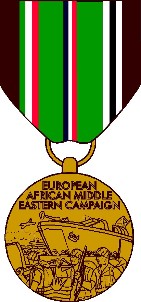 "The city of Brest in France housed the submarine pens from which U-boats (submarines)
threaded their way into the Atlantic to attack Allied shipping. As a port it was needed
by the Allies, who were hard-pressed for harbors through which to feed the growing armies in France.
"The city of Brest in France housed the submarine pens from which U-boats (submarines)
threaded their way into the Atlantic to attack Allied shipping. As a port it was needed
by the Allies, who were hard-pressed for harbors through which to feed the growing armies in France.
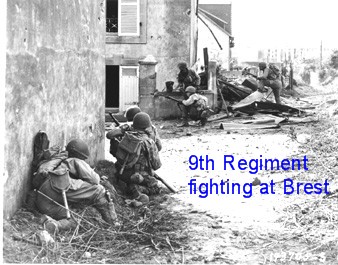 Three divisions, with a large amount of supporting corps artillery, were assigned to
reduce the garrison. The plan for the 2nd Division was to drive south through the
easternmost part of the city to the harbor. On the right (western flank), the 8th Infantry
Division was poised to whip south through the center of Brest. Farther to the west moved
the 29th Infantry Division, heading south to clean out the western tip of the Brittany
Peninsula. A task force, composed of the 38th Regimental Combat Team and other units, was
scheduled to reduce the Daoulas Peninsula.
Three divisions, with a large amount of supporting corps artillery, were assigned to
reduce the garrison. The plan for the 2nd Division was to drive south through the
easternmost part of the city to the harbor. On the right (western flank), the 8th Infantry
Division was poised to whip south through the center of Brest. Farther to the west moved
the 29th Infantry Division, heading south to clean out the western tip of the Brittany
Peninsula. A task force, composed of the 38th Regimental Combat Team and other units, was
scheduled to reduce the Daoulas Peninsula.
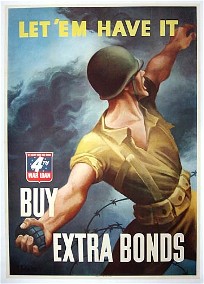 Although much hard fighting lay ahead, capture of Hill 154 was the beginning of the end for
the Daoulas Peninsula. Seven days later the task force swept to the tip to clean out
pockets of resistance around Plougastel, and reap a harvest of over 3000 prisoners. The
38th Inf. returned to the division, which now closed in on the main defenses of Brest.
Although much hard fighting lay ahead, capture of Hill 154 was the beginning of the end for
the Daoulas Peninsula. Seven days later the task force swept to the tip to clean out
pockets of resistance around Plougastel, and reap a harvest of over 3000 prisoners. The
38th Inf. returned to the division, which now closed in on the main defenses of Brest.
 The force of the explosion left craters 100 feet wide and 50 feet deep. One man-sized
piece of concrete smashed a trucksize hole in a thick hedgerow 100 yards away.
The force of the explosion left craters 100 feet wide and 50 feet deep. One man-sized
piece of concrete smashed a trucksize hole in a thick hedgerow 100 yards away.
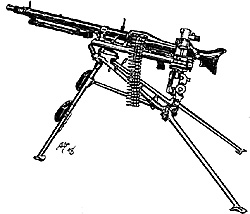 That night the enemy withdrew 500 yards.
That night the enemy withdrew 500 yards.
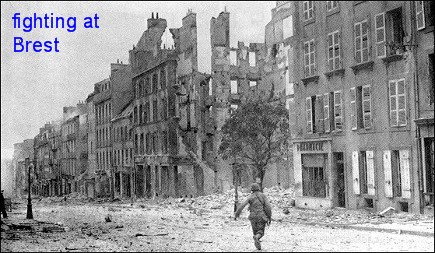 In Brest itself, pillars of smoke billowed constantly from fires set by artillery and
aerial bombardment. Traces of gunpowder and burnt wood lingered in the air. Only skeletons
of buildings remained- some blackened by fire, others hollowed by concussion blasts.
Here and there blocks of apartments or stores stood untouched. Piles of debris spilled,
slopped into deserted streets.
In Brest itself, pillars of smoke billowed constantly from fires set by artillery and
aerial bombardment. Traces of gunpowder and burnt wood lingered in the air. Only skeletons
of buildings remained- some blackened by fire, others hollowed by concussion blasts.
Here and there blocks of apartments or stores stood untouched. Piles of debris spilled,
slopped into deserted streets.
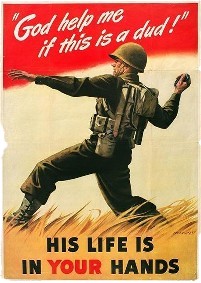 Surrounding, flanking, working their way from block to block, sometimes knocking out a
machine gun from an upper story window, or engaging in grenade and fire fights within
buildings, the infantry inched forward. One of the sharpest fights occurred in the
cemetery on the southern edge of town, where Germans had set up machine guns for crossfire,
protected by ornate French tombstones. One platoon wormed its way into this macabre battlefield,
but had to withdraw until holes could be blasted in the cemetery walls. Buildings on both
sides were in American hands before the cemetery finally could be taken.
Surrounding, flanking, working their way from block to block, sometimes knocking out a
machine gun from an upper story window, or engaging in grenade and fire fights within
buildings, the infantry inched forward. One of the sharpest fights occurred in the
cemetery on the southern edge of town, where Germans had set up machine guns for crossfire,
protected by ornate French tombstones. One platoon wormed its way into this macabre battlefield,
but had to withdraw until holes could be blasted in the cemetery walls. Buildings on both
sides were in American hands before the cemetery finally could be taken.
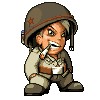 Now it was nearly 1500 (3 o'clock p.m.). From holes, caves and underground dugouts Germans
straggled into the "Place du President Wilson." Some wore well-tailored, fancy uniforms,
in sharp contrast to the more practical battle dress of the Americans. Dirty, ragged clothes
hung on others. Collected in little groups in the enormous square were the grey-haired labor
troops, the conglomeration of naval personnel who had been fighting as infantrymen, the
scrawny youths and the stiff, well-dressed officers.
Now it was nearly 1500 (3 o'clock p.m.). From holes, caves and underground dugouts Germans
straggled into the "Place du President Wilson." Some wore well-tailored, fancy uniforms,
in sharp contrast to the more practical battle dress of the Americans. Dirty, ragged clothes
hung on others. Collected in little groups in the enormous square were the grey-haired labor
troops, the conglomeration of naval personnel who had been fighting as infantrymen, the
scrawny youths and the stiff, well-dressed officers.

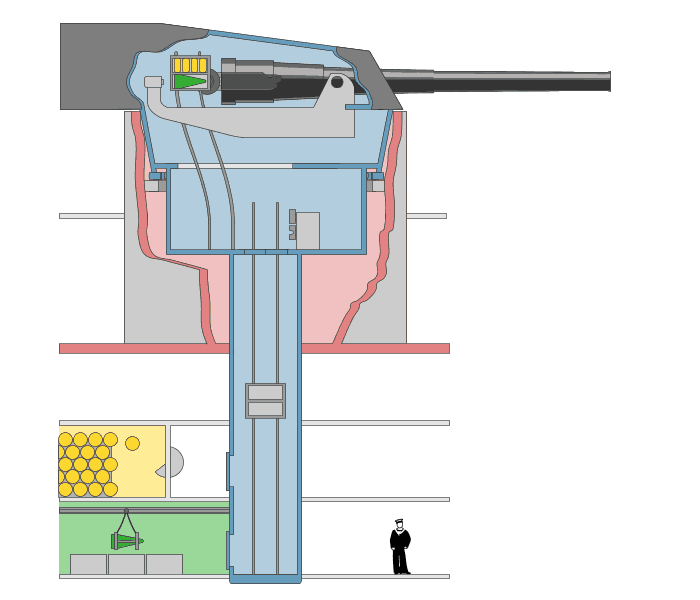
The Germans had some big cannons they used at Brest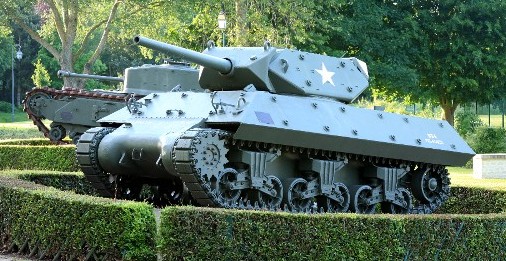 August 25, 1944 (Friday): “(We) attacked pill boxes all day. (We had) 20 casualties.
3 of our tanks were knocked out. I took over the platoon.”
August 25, 1944 (Friday): “(We) attacked pill boxes all day. (We had) 20 casualties.
3 of our tanks were knocked out. I took over the platoon.”
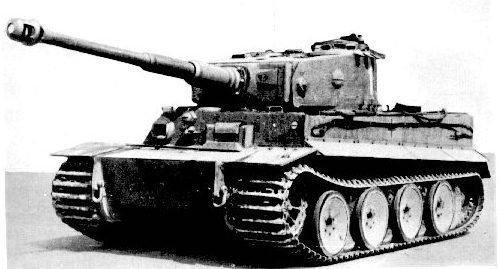
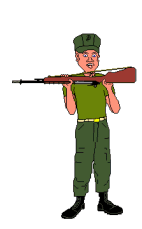 Sept 10, 1944 (Sunday) “Went to church. I made out a money order for $56.00. I am
taking it easy. I am drilling recruits in hedgerow fighting.”
Sept 10, 1944 (Sunday) “Went to church. I made out a money order for $56.00. I am
taking it easy. I am drilling recruits in hedgerow fighting.”


American Campaign (Medal) Ribbon
SCHNEE EIFEL DEFENSIVE October 4 - December 12, 1944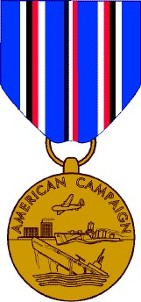 "The 2nd Div. moved by truck and train across France and Belgium to the Siegfried Line.
It entered Germany on October 4, 1944. It crossed the border in the Schnee-Eiffel, ten
miles East of St. Vith, Belgium, and as it first mission on German soil, took over the
defense of a 27-mile sector along the Siegfried Line. This was a sector, supposedly held
by the enemy in light force, through which German General Von Runstedt's armies were to
strike in the great counter-offensive, launched five days after the 2nd Div. had moved to
another sector on December 11.
"The 2nd Div. moved by truck and train across France and Belgium to the Siegfried Line.
It entered Germany on October 4, 1944. It crossed the border in the Schnee-Eiffel, ten
miles East of St. Vith, Belgium, and as it first mission on German soil, took over the
defense of a 27-mile sector along the Siegfried Line. This was a sector, supposedly held
by the enemy in light force, through which German General Von Runstedt's armies were to
strike in the great counter-offensive, launched five days after the 2nd Div. had moved to
another sector on December 11.

American Defense Service (Medal) Ribbon

Presidential Distinguished Unit Badge (citation)
(blue for the color of infantry; red for the color of artillery)
(My father had a palm affixed to his blue one)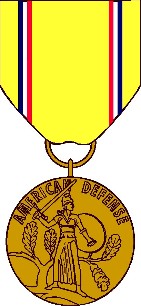 October 4, 1944 (Wednesday) “We hiked 10 miles (and entered Germany). We went into the Siegfried Line near Prum. Built six man (large fox) holes with fire places. No cigarettes.”
October 4, 1944 (Wednesday) “We hiked 10 miles (and entered Germany). We went into the Siegfried Line near Prum. Built six man (large fox) holes with fire places. No cigarettes.”
 October 20, 1944 (Friday) “Cut wood. Good chow. General Robertson came around with Col. McKinley. No rain. No mail. I have a cold.”
October 20, 1944 (Friday) “Cut wood. Good chow. General Robertson came around with Col. McKinley. No rain. No mail. I have a cold.”

The Bronze Star Medal (originally issued for bravery under fire)
Later, it was issued to whoever had a combat infantryman's badge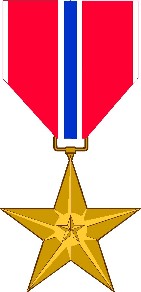 November 1, 1944 (Wednesday) “Cut logs all day again. It is cold and wet. I have a bad cold. Sgt. DeHarde went to the 2nd Platoon.”
November 1, 1944 (Wednesday) “Cut logs all day again. It is cold and wet. I have a bad cold. Sgt. DeHarde went to the 2nd Platoon.”
 November 18, 1944 (Saturday) “Got back from pass. I had 2 letters. One from Vicky and one from Agnes (my sister). I had a headache. Snow is melting. Lt. Hummel was transferred to the (aircorps) B-52’s. Lt. Knoles took over as (3rd) platoon leader.”
November 18, 1944 (Saturday) “Got back from pass. I had 2 letters. One from Vicky and one from Agnes (my sister). I had a headache. Snow is melting. Lt. Hummel was transferred to the (aircorps) B-52’s. Lt. Knoles took over as (3rd) platoon leader.”


Good Conduct (Medal) Ribbon
WEHLERSCHEID OFFENSIVE December 13-16, 1944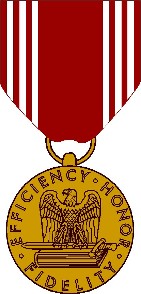 "The battle of Heartbreak Crossroad was a battle for the Roer River dams. The Second had the
mission of capturing the dams if possible, or to force the enemy to blow up the dams and
eliminate the threat of the floodwaters wrecking the river crossings planned along the
river. From Gemund, the river ran North several hundred miles and was a dangerous threat
to the Allied advance as long as the enemy controlled the dams. The division's mission was an
important one.
"The battle of Heartbreak Crossroad was a battle for the Roer River dams. The Second had the
mission of capturing the dams if possible, or to force the enemy to blow up the dams and
eliminate the threat of the floodwaters wrecking the river crossings planned along the
river. From Gemund, the river ran North several hundred miles and was a dangerous threat
to the Allied advance as long as the enemy controlled the dams. The division's mission was an
important one.

A metal Honorable Service Lapel Button or cloth patch, World War 2
Also called the "Rupture Duck" (honorable discharge)
World War Two Victory (Medal) Ribbon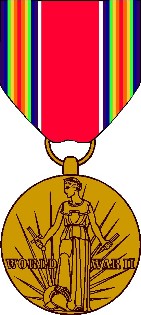 December 13, 1944 (Wednesday) “Attacked all day through the woods. I got hit in the side and a tree fell on me. I walked (back) 5 miles to an aid station. There are only 18 men left in C Company.”
December 13, 1944 (Wednesday) “Attacked all day through the woods. I got hit in the side and a tree fell on me. I walked (back) 5 miles to an aid station. There are only 18 men left in C Company.”

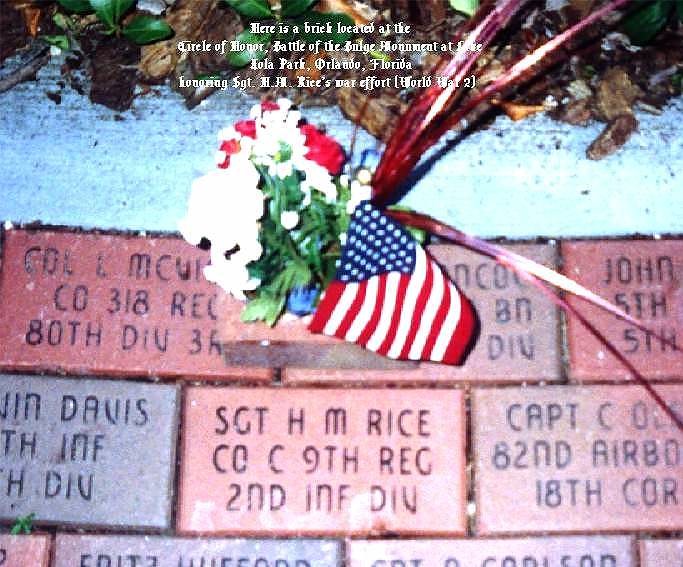
ROCHERATH-KRINKELT-WIRTZFELD DEFENSIVE December 17-19, 1944
ELSENBORN RIDGE DEFENSIVE December 20, 1944 - January 29, 1945
WEHLERSCHEID-HARPERSCHEID OFFENSIVE January 30 - February 5, 1945
HARPERSCHEID-DREIBORN DEFENSIVE February 6-28, 1945
GEMUND OFFENSIVE March 1-5, 1945
BREAKTHROUGH TO THE RHINE March 6-12, 1945
RHINE DEFENSIVE March 13-20, 1945
REMAGEN BRIDGHEAD OFFENSIVE March 21-27, 1945
RUHR ENCIRCLEMENT March 28-31, 1945
THE PURSUIT THROUGH GERMANY April 1-12, 1945
BATTLE OF LEIPZIG April 13-18, 1945
MULDE RIVER DEFENSIVE April 19-30, 1945
CZECH OFFENSIVE May 1-7, 1945

Links![]() Click here if you want to read part 1 of his war diary
Click here if you want to read part 1 of his war diary
![]() The U.S. Second Infantry Division in World War Two
The U.S. Second Infantry Division in World War Two
![]() Thomas M. Rice- Killed in Action in Early Texas in 1842
Thomas M. Rice- Killed in Action in Early Texas in 1842

Articles on Spiritual Salvation

How to Live as a Christian Believer
Click here to go to the master index page
